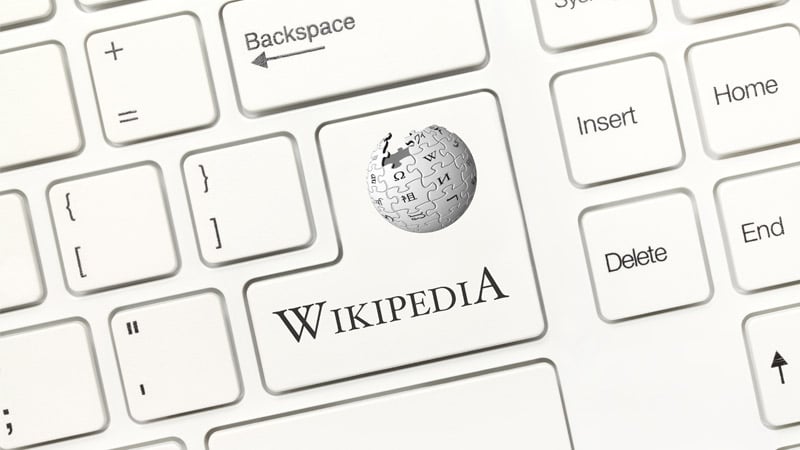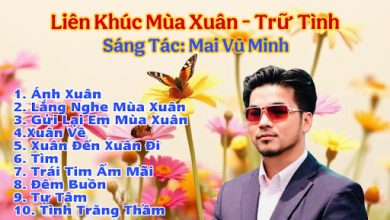Is Wikipedia a Reliable Source for Academia? What You Need to Know for Research

Trusting Wikipedia for research? Let’s uncover when it’s reliable and how to use it smartly!
Is Wikipedia a friend or foe for researchers? With its vast accessibility and endless articles, it’s often the first stop for quick information. However, its open-edit nature raises questions about reliability and credibility, especially in academic circles.
In this guide, we’ll delve into Wikipedia’s strengths and weaknesses, explore when and how it can be used effectively along with AI tools such as ResearchPal.co, and provide practical tips for leveraging it as a research starting point without compromising the credibility of your work.
How Wikipedia Works
Wikipedia operates as a unique, collaborative encyclopedia powered by its open-editing model and a vast network of volunteer contributors. Despite its innovative structure, this approach raises questions about its reliability, especially in academic and professional contexts. Understanding its framework is essential for evaluating its credibility.
Wikipedia’s Open-Editing Model
One of Wikipedia’s core principles is its open-editing model, allowing anyone with internet access to create or edit articles. This fosters inclusivity and encourages global collaboration, resulting in a vast repository of information. However, this openness also introduces risks, such as vandalism, misinformation, and biased edits, which can undermine the platform’s credibility.
Role of Volunteer Contributors
Wikipedia content is created and maintained by volunteers with diverse expertise levels, ranging from subject-matter experts to casual users. While dedicated editors often strive for accuracy, gaps in knowledge or personal biases can affect the quality of articles. This reliance on volunteers means that some topics may receive detailed coverage, while others might be sparse or imprecise.
Content Guidelines and Policies
To uphold quality, Wikipedia enforces guidelines emphasizing verifiability, neutrality, and reliance on credible sources. These policies aim to ensure that all claims are backed by reliable references and presented without bias. However, their application can be inconsistent, especially in articles on controversial or niche topics, where disputes among editors may occur.
Evaluating the Credibility of Wikipedia
Wikipedia’s credibility is influenced by factors like accuracy, editorial practices, and the potential for bias. While it is widely accessible, researchers must critically analyze its content and the sources it cites.
Accuracy and Reliability Studies
Several studies have evaluated Wikipedia’s accuracy compared to traditional academic sources. While its articles on scientific and historical topics often match the reliability of traditional encyclopedias, gaps and errors remain, particularly in lesser-known subjects. This reinforces the need to cross-check Wikipedia content with other credible references before relying on it for research.
Comparison with Traditional Academic Sources
Unlike academic journals that undergo formal peer review, Wikipedia relies on community editing. This difference impacts its reliability, as expert oversight is not guaranteed. However, Wikipedia’s advantage lies in its ability to quickly update information, which is useful for fast-changing topics but requires scrutiny for accuracy.
Potential for Bias and Misinformation
Wikipedia’s open-editing model allows for broad collaboration but also introduces risks. On controversial topics, bias or misinformation may creep in due to the following:
- Edit wars: Frequent changes by opposing contributors can skew content.
- Subjective contributions: Articles on politically or socially charged topics may reflect personal perspectives.
- Limited citations: Some entries rely on questionable sources, weakening their credibility.
To ensure reliability, always assess the neutrality of the content and verify claims with independent, authoritative sources.
Community Oversight and Editorial Practices
Community tools like edit histories and discussion pages provide transparency and allow users to review the evolution of content. These practices help address inaccuracies but are only as effective as the contributors monitoring them. While oversight improves reliability, it is not a substitute for formal review processes, and some inaccuracies may persist.
When is Wikipedia Useful?
Wikipedia is a versatile research tool, but it should be used as a supplementary resource rather than a primary citation. Here’s how it can be effectively leveraged to support your work.
As a Starting Point for Research
Wikipedia provides a broad overview of topics, making it a helpful first step in the research process. For example, someone researching artificial intelligence can quickly understand its history and key terms before diving into more detailed academic resources. Always verify the information with reliable primary or secondary sources.
Understanding Vocabulary and Technical Terms
Wikipedia simplifies complex jargon, helping readers grasp unfamiliar terms, particularly in specialized fields. For example:
- Medical students can quickly look up terms like “genomic sequencing” for a basic definition.
- Engineers might use Wikipedia to decode concepts like “finite element analysis” before consulting technical manuals.
- Law students can use it to clarify legal jargon, such as “amicus curiae.”
Exploring Related Topics and Context
One of Wikipedia’s strengths lies in its internal linking system. This feature allows users to explore related topics and gain a deeper understanding of the subject. For example, a student researching environmental policy might follow links to pages on “carbon footprint” or “renewable energy initiatives.”
Identifying Reliable References and Sources
The reference section at the end of Wikipedia articles can guide readers to credible sources. These citations often include academic papers, books, and official reports. Examples of how this can help:
- A student studying climate change might find links to peer-reviewed articles listed in Wikipedia’s references.
- Historians may discover digitized primary sources, like treaties or speeches, cited in articles about historical events.
- Researchers can locate governmental or organizational reports referenced in articles on public policy.
Generating Research Questions
Wikipedia often presents diverse perspectives on a topic, making it a great tool for sparking new ideas. For instance, reading about “cybersecurity” might lead you to explore specific research questions like, “What are the ethical implications of biometric security systems?”
Limitations of Using Wikipedia
While Wikipedia is a valuable resource, it has limitations that researchers should consider. Below are some of the challenges associated with relying too heavily on Wikipedia.
Lack of Formal Peer Review
Unlike academic journals, Wikipedia does not have a formal peer review process. This lack of rigorous evaluation means that its articles may not meet the same standards of accuracy and reliability expected in scholarly publications. For example, while a journal article undergoes review by experts, Wikipedia relies on community edits, which may not always correct errors or verify sources promptly.
Vulnerability to Vandalism
Wikipedia’s open-editing model allows anyone to make changes, which makes it vulnerable to malicious edits or vandalism. For instance, a high-profile page like “COVID-19” has experienced deliberate misinformation attempts, leading to false data being temporarily displayed.
Systemic Bias in Content
Wikipedia’s content often reflects systemic biases, influenced by the demographic makeup of its contributors. For example, topics related to Western history and culture are often more detailed, while subjects from underrepresented regions, such as African or Indigenous histories, may be incomplete or oversimplified.
Gender and Racial Bias in Coverage
Certain groups, especially women and people of color, are underrepresented on Wikipedia. For instance:
- Only a small percentage of biographical entries are about women, creating a skewed perspective.
- Many historical events in non-Western countries receive limited coverage compared to Western events.
These gaps illustrate how Wikipedia can perpetuate inequities in representation, affecting its reliability as a comprehensive resource.
Edit Wars and Content Disputes
Wikipedia articles on controversial topics can become battlegrounds for conflicting viewpoints, resulting in frequent edits and inconsistencies. For example, pages on political figures or contentious issues like climate change often experience “edit wars,” where contributors repeatedly alter content to reflect opposing narratives.
Variability in the Reliability of Cited Sources
Not all references in Wikipedia articles are credible. Some citations may link to biased, outdated, or non-academic sources, which diminishes the overall quality of the content. A page on a scientific breakthrough, for example, may cite media articles instead of peer-reviewed studies, requiring readers to evaluate the cited sources carefully.
AI powered research tools such as ResearchPal.co can be used to verify the credibility of claims made in Wikipedia.
Misinformation and Outdated Information
Because Wikipedia relies on volunteer contributions, some articles may contain outdated or incorrect information. For rapidly evolving topics, such as artificial intelligence, changes in technology or understanding may not be reflected promptly, leading to inaccuracies.
Gaps in Coverage of Certain Topics
Wikipedia’s user-driven model means that niche or emerging topics often lack adequate coverage. For instance, a new field like “quantum computing in healthcare” may not have a dedicated or detailed page, making Wikipedia less useful for cutting-edge research.
Academic Perspectives on Citing Wikipedia
Academia often discourages directly citing Wikipedia due to its open-editing model and lack of peer review. Institutions typically recommend using primary or peer-reviewed sources instead. For example, citing a scientific journal on climate change carries more credibility than referencing Wikipedia’s page on the topic.
However, there are exceptions where citing Wikipedia may be appropriate:
- Research on Wikipedia itself: For studies analyzing its content, evolution, or digital influence.
- Non-scholarly contexts: Such as informal presentations or blog posts where rigorous citations aren’t required.
Most often, Wikipedia serves best as a background resource to:
- Gain a broad overview of a topic.
- Identify key terms or references for deeper research.
Used responsibly, Wikipedia can support academic work without being the primary source of evidence.
Using Wikipedia Responsibly in Research
Wikipedia offers a wealth of accessible information, making it a great starting point for academic research. Its strengths lie in providing overviews, clarifying technical terms, and directing readers to credible references through its citation lists. However, its open-editing model and lack of peer review mean it should never be relied on as a definitive source.
To elevate your research, use tools like ResearchPal.co to organize findings and discover credible academic references. With the right approach and resources, you can create work that is both accurate and impactful.





